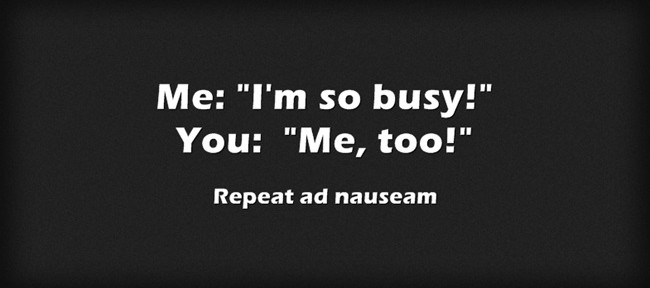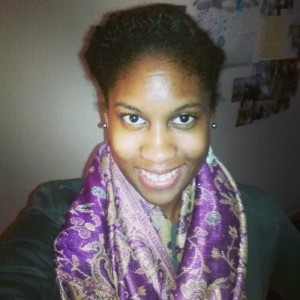Experts from around the world met in November 2015, in Washington, D.C., to participate in a 2 ½-day summit, “Global Approaches to Integrated Health Care: Translating Science and Best Practices into Patient-Centered Healthcare Delivery”.
“Global Approaches to Integrated Health Care: Translating Science and Best Practices into Patient-Centered Healthcare Delivery”.
Approximately 85 psychologists, physicians, public health workers and policy analysts met in person for the interdisciplinary summit as well as more than 400 virtual attendees from around the world, who viewed the proceedings via a live video simulcast. Two APAGS representatives, Justin Karr and Jerrold Yeo, attended the summit and provide their impressions and thoughts on this experience below.
Justin Karr
Dr. Tor Levin Hofgaard, the President of the Norwegian Psychological Association, spoke at the Summit and clarified a famous statement that he once made, in which he claimed that, “we should have psychologists at IKEA.” He meant that psychologist should be located where people are already going, decreasing stigma around mental health care and increasing the normality of seeing your psychologist. Integrated healthcare bears a special importance for health service psychologists, as we aim to collaborate with other medical professions by incorporating mental and behavioral health services into primary care. Ideally, psychological services can become as commonplace and de-stigmatized as a standard medical check-up, where people have a professional attend to their mental health within the same setting where they receive other medical services.
As a student, I saw the Summit as both awe-inspiring and daunting. The evidence promoting an integrated healthcare model is astounding. With cost-savings, improved health outcomes, and even higher clinician satisfaction ratings, there is an overwhelming amount of published research supporting the implementation of integrated healthcare. During a working group session of the Summit, one presenter actually stated, “We don’t need any more research,” clarifying that there is more than enough research to support moving forward with implementation. However, many barriers stand in the way of actualizing more widespread integrated services, including many changes that need to occur in funding structures, healthcare policies, current practices and educational standards.
Although the barriers are significant, the Summit left me with great optimism, as leaders across fields and occupational sectors came together to help make integrated healthcare a more common reality for the patients we serve. Dr. Arthur C. Evans, the Commissioner of Philadelphia’s Department of Behavioral Health and Intellectual disAbility Service (DBHIDS), shared one of his favorite sayings at the Summit, “Inherent in every community is the wisdom to solve its own problems.” As a community psychologist, he quoted this statement during a panel on special populations, emphasizing the involvement of local community members in the policy-making that directly affects their lives; however, I feel it also applies to our community as healthcare professionals. As Health Service Psychologists, we are members of the healthcare community, and with our colleagues across disciplines, we possess the wisdom to actualize integrated health care and support the well-being of the patients and clients that benefit from our services.
I look forward to seeing the continued integration of healthcare in my remaining time as a student, and over the course of my life as a psychologist. However, I do not see myself as merely an observer, but as a part of this change. As students, we will inherit many of the impending reforms coming to our clinical practice, and we must ensure that we voice both our support and concerns as these changes will surely impact our training and careers. Students must be actively engaged in the decision-making that determines training standards; not only during our graduate education, but also throughout our careers.
One discussion at the Summit emphasized the need to change patient expectations, where healthcare consumers expect access to integrated services every time they enter into a primary care facility. In the same light, we as students must expect effective training in collaborative practice that operates across disciplines. As consumers of graduate education, we are significant stakeholders in this enterprise, and we must have opportunities within our training to experience modern healthcare models in a way that best prepares us to work with other disciplines. In turn, I look forward to not only the changes that occur in practice following this Summit, but also the changes that will occur in education. As we prepare for an improved integration of care, I hope that we, as the next generation of psychologists, will become more appreciative of our fellow healthcare disciplines throughout our training; and in the same light, I hope that other disciplines will become more appreciative of health service psychology, understanding the unique and essential role of psychological services in the true integration of care.
Jerrold Yeo
Although the atmosphere of the summit was a little intimidating as it was well-attended by many key people in the field, I felt welcomed as a student representative attending the conference. I had never seen so many leaders of psychology from diverse cultures and backgrounds in the same room, and bouncing ideas and thoughts off them in addition to the networking experience felt surreal.
A number of points stuck with me as I listened to the many keynote speakers and panels throughout the summit. Listening to how different healthcare systems work in different countries and learning about the differences between them helped make me more aware of any challenges that I might face as a soon-to-be professional, (e.g., reimbursement, payment systems and Medicaid to aid lower-income families). It was also fascinating to hear a possibly controversial argument about not needing any more research on integrated care; but the take home message that I got from that was that we are doing good research on the topic, but have not been able to implement it as effectively as we would have liked.
It was also very interesting to hear the patient perspective at a professional summit like this. I think it provided a very real touch to the whole summit as we get reminded of why we do this: for the people. E-patient Dave, who is an activist for healthcare transformation through participatory medicine and personal health data rights, also reminded us that we should try to engage patients in their own treatment, to empower them to find out more about their own difficulties and make informed decisions.
Many times during the summit I questioned myself: “What am I doing here? As a student, what can I do?” These questions kept running through my mind as I attempted to socialize and network with these high-flying professionals. Only during the second part of each day did my question get answered. The second half of each day was devoted to small group discussion and brainstorming. Justin and I were split up into different groups so that we could provide a unique student perspective. Personally, I advocated for the education of the general public from a young age to expect integrated care, which appeared to be well received. Where we shined was that we, as students, were able to provide a perspective that could complement the policy changes that the leaders in the field were proposing.
Through this summit, I think that I became inspired to become more involved in the advocacy of integrated care and provide more comprehensive services to my clients. As a student attending this summit, it became clear to me that, as future leaders in the field, we have to pave the way for psychology to be a part of the integrated care system by establishing important connections with other professions and advocating for psychology to be used more effectively and efficiently in the provision of health care services.
Editor’s Note: Justin Karr (University of Victoria) is the current APAGS Member-at-Large for Membership Recruitment/Retention and Jerrold Yeo (University of Denver) is a former member of the APAGS Convention Committee.





 Guest columnist: Meredith A. Martyr, University of Minnesota – Twin Cities, Class of 2019
Guest columnist: Meredith A. Martyr, University of Minnesota – Twin Cities, Class of 2019



